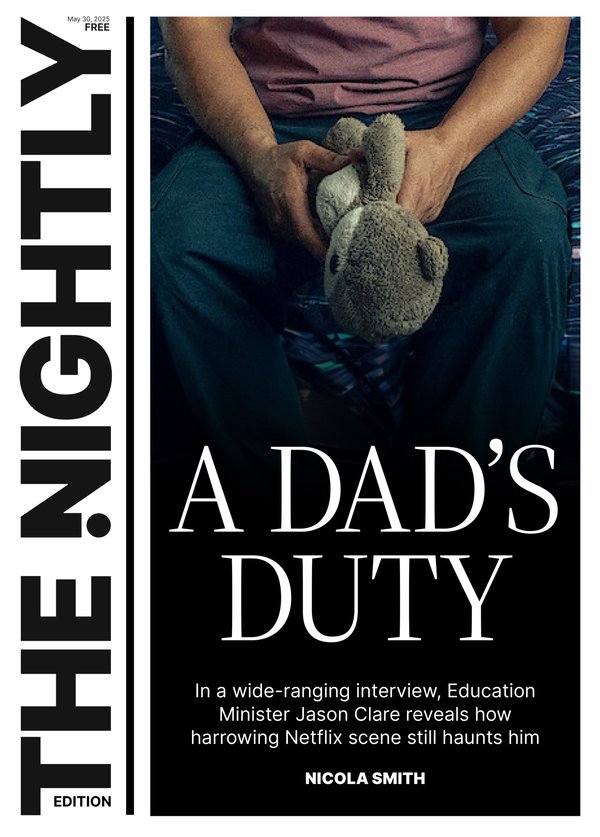The six ways the Cannes Film Festival will shape the year in movies
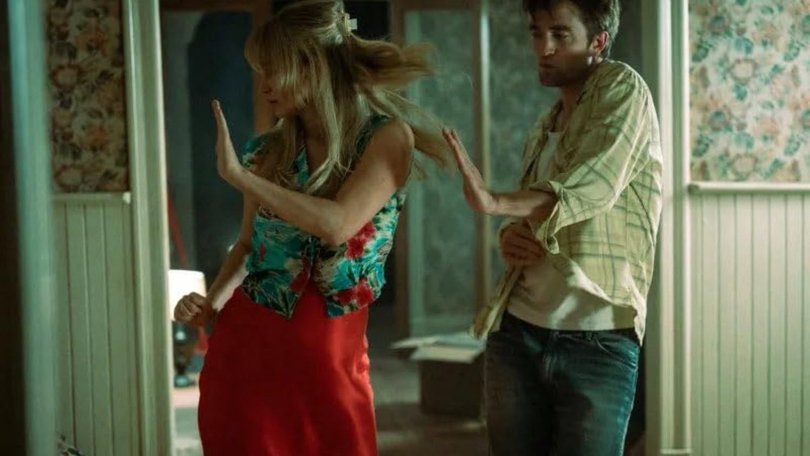
It was a Cannes Film Festival that began on May 13 with Robert De Niro calling Donald Trump “America’s philistine president” — electrifying the European press at the opening ceremony as the actor criticised Trump’s takeover of the Kennedy Center and his proposed tariff on foreign-made films.
And it was one that ended Saturday with the Palme d’Or going to the Iranian dissident director Jafar Panahi for his political thriller “It Was Just an Accident.”
Praising the pick, Cannes jury president Juliette Binoche said the film “springs from a feeling of resistance, survival, which is absolutely necessary today.”
Sign up to The Nightly's newsletters.
Get the first look at the digital newspaper, curated daily stories and breaking headlines delivered to your inbox.
By continuing you agree to our Terms and Privacy Policy.In between, politics spoke more loudly on-screen than in news conferences (“Can you hold up the movie in customs?” director Wes Anderson jokingly asked in one). It also wasn’t the United States’ year.
Cannes has over the past two editions become the leading film festival in the world, setting the stage for daring international movies that could be winners at the art house as well as the Oscars.
Think “The Substance,” “Anatomy of a Fall,” “The Zone of Interest” and “Anora” — which may have set a bar too high for this year’s American films to meet after winning the Palme d’Or and then five Oscars, including best picture. Some deflation was probably to be expected for 2025.
Among the Americans, Tom Cruise was a bit of a letdown at the premiere for the (allegedly) final Mission: Impossible, since he showed up in a car instead of arriving by helicopter or parachute.
Highly anticipated movies from big-time auteurs like Anderson, Richard Linklater and Spike Lee seemed to fade from the conversation soon after they debuted, while passion for audacious and politically charged European and Middle Eastern fare grew stronger by the day.
What stood out? Who looked great? Can we already talk about the next Oscars? (Yes!) And how were the parties? Here are some highs, lows and surprises of what many agreed was a “weird year” at Cannes.
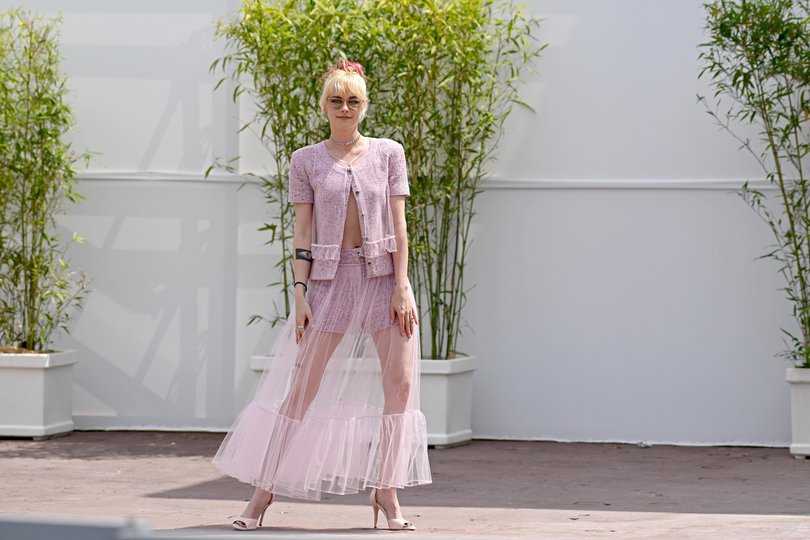
The year’s first Oscars bets
Critics were divided over Lynne Ramsay’s “Die, My Love,” a punk-rock portrayal of postpartum depression complete with a blazing retro soundtrack and a blazing forest-fire metaphor.
What no one is quibbling about, though, is Jennifer Lawrence’s incendiary, very funny lead performance as a new mother, Grace, who is isolated in rural America and experiencing a kind of liberation in her madness.
Lawrence’s chances are buoyed by the tremendous desire to see her back on the awards stage.
Ditto for June Squibb, who at 95 is having quite a late-career resurgence.
Her performance in Scarlett Johansson’s dramedy “Eleanor the Great” had much of the audience wiping away tears.
Squibb stars as a brassy Florida retiree who, in grief, recounts her late best friend’s Holocaust story as if it’s her own, and then keeps compounding the lies, jeopardising a lovely new friendship with a college journalism student.
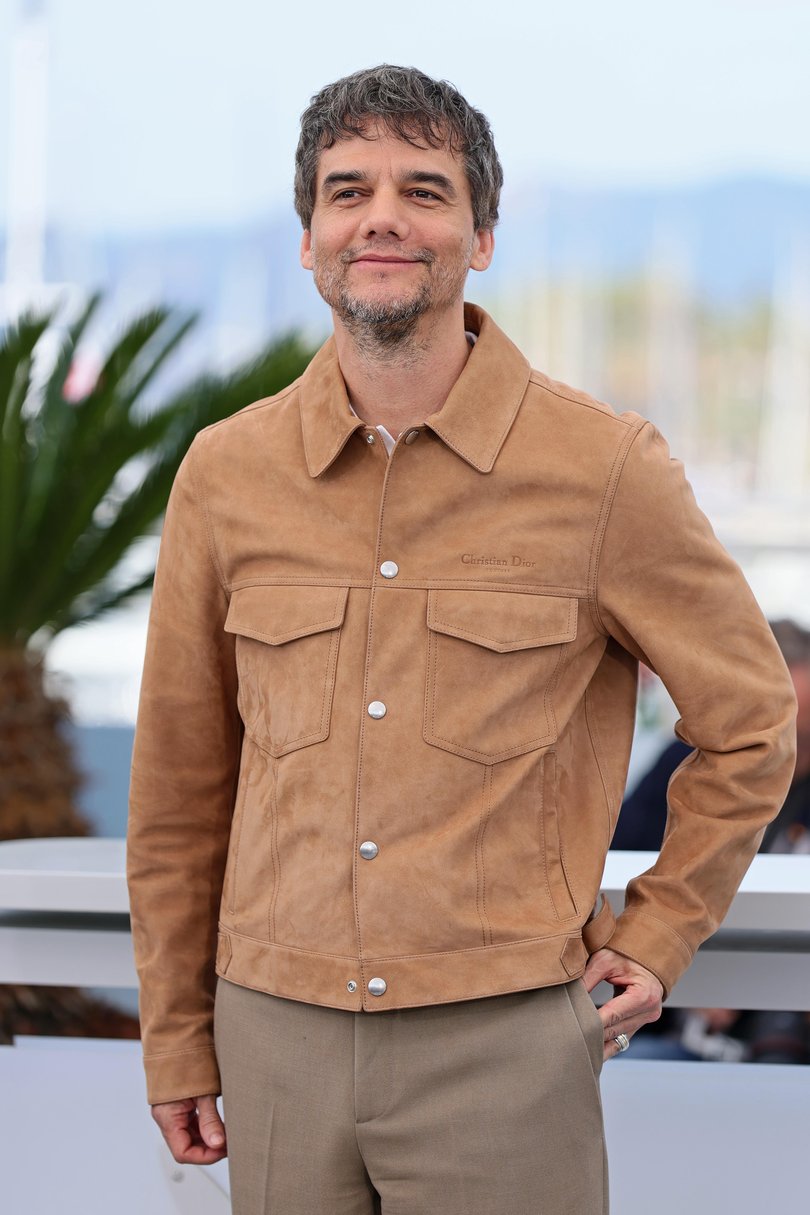
Your next cerebral sex symbol
Two years ago, Cannes gave us the gift of Swann Arlaud, a.k.a. the hot lawyer from “Anatomy of a Fall,” a.k.a. the man with feminist values, and a plan, and an excellent head of salt-and-pepper hair. Internet crushes, however, must eventually pass on their crown.
Enter Wagner Moura, 48, the Brazilian star of director Kleber Mendonça Filho’s “The Secret Agent” — and now winner of the best actor prize at Cannes. He plays a gentle academic on the run in this enveloping crime thriller about the vibrant lives of political exiles, set during Carnival week amid Brazil’s military dictatorship in 1977.
South Korean director Hong Sang-soo, a jury member, said in a news conference that he had admired Moura’s work before but had been struck by his “sensitivity” this time.
Moura is already plenty famous in Brazil, and he earned notice as Pablo Escobar in Netflix’s “Narcos” and as a journalist in 2024’s “Civil War.”
Everyone else will probably get to know him on the awards circuit, since “The Secret Agent” was bought by Neon, which released “Anora” and “Parasite” in North America.
Thirsty fancams are sure to follow: When I posted a video of Moura soaking in the movie’s 15-minute standing ovation, I was flooded with Brazilians sending fire emojis.

A first-time filmmaker faceoff
This year’s prestigious Un Certain Regard competition for first- and second-time filmmakers had three names that stood out: Kristen Stewart, Scarlett Johansson and Harris Dickinson. All three actors premiered their directorial debuts.
Stewart was first up, showing off poetic visual flare and a fractured storytelling approach — meant to mimic flashes of memory — in “The Chronology of Water.”
It was so well-reviewed at the festival that Stewart told the New York Times, “I’m totally willing for people to come for it. I’m almost wanting it.”
Critics were more mixed about Johansson’s effort, “Eleanor the Great,” but praised Squibb.
The biggest surprise was Dickinson.
It seems almost unfair that the 28-year-old British dreamboat (“Babygirl,” “Triangle of Sadness” and, soon, John Lennon in Sam Mendes’s upcoming Beatles biopics) also happens to be very good at directing.
His film is “Urchin,” an intimate portrait of a heroin addict, Nathan (Frank Dillane), that Cannes critics called “terrifically impressive,” “sophisticated and worldly” and “a piercing observation of modern life on the fringes.”
Dillane won best actor in Un Certain Regard, and Dickinson’s film could end up an awards-season dark horse.
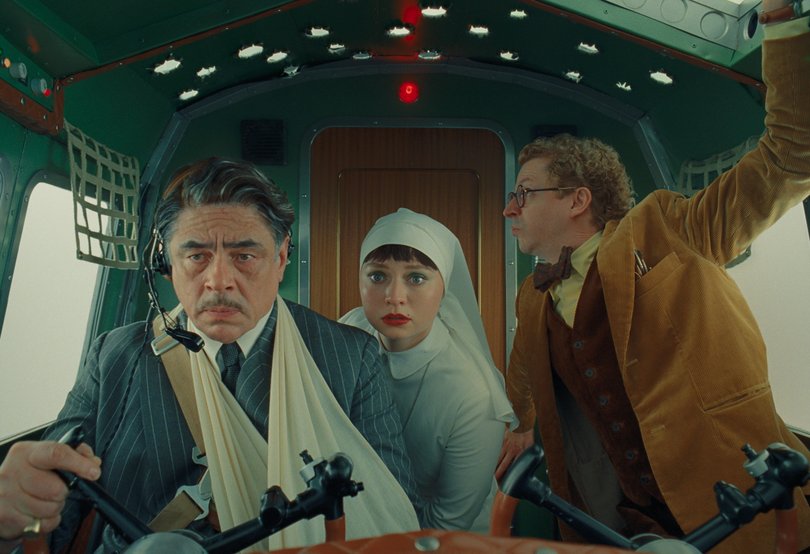
Directors get older while their movies stay the same age
American journalists had some obvious must-sees: It’s not often that Richard Linklater, Wes Anderson and Spike Lee premiere new movies almost simultaneously.
Lee’s “Highest 2 Lowest” was perhaps the most fun premiere of the festival, especially because Denzel Washington — on his day off from “Othello” on Broadway — was surprised with an honorary Palme d’Or. But critics were mixed on the film itself, a reimagining of Akira Kurosawa’s “High and Low.”
Anderson’s entertaining “The Phoenician Scheme” follows Benicio Del Toro as Zsa-zsa Korda, an eccentric criminal businessman who is trying to reconnect with his daughter, but keeps getting in plane crashes because everyone’s trying to assassinate him. Critics were mixed, but it’s classic Wes Anderson — audiences got what they expected.
Linklater’s “Nouvelle Vague,” a black-and-white, French-language period comedy about 29-year-old maverick Jean-Luc Godard making his first film — “Breathless,” of course — fared better, but it was also exactly the kind of offering (French! Cinema!) that would appeal to the regulars at Cannes.
In a twist, though, Netflix bought it and is likely to make the film its big awards play — an ode to a golden age of movie-making that will probably only play in movie theatres for two weeks.
A winner with a thriller-like story
Panahi, the Palme d’Or winner for “It Was Just an Accident,” hadn’t been to Cannes since 2003, because the Iranian government had banned him for 20 years from both travelling and making movies.
Even though he had been allowed to return to filmmaking, Panahi still shot this one in secret to avoid government script approval and a requirement that every woman in the film wear a hijab at all times.
No wonder: The movie is an often funny, often harrowing tale about former political prisoners confronting a man they believe to have been their torturer.
He got a hero’s welcome upon returning to Iran on Monday, but that’s no guarantee that officials won’t jail him again, despite his accolades. For now, his movie’s story is still a nail-biter.
A breakout hit
Take “Mad Max” and throw in two sweet dogs, an impending World War III and many tense dialogue-free stretches of pulsating EDM, and you might approximate French-Spanish director Oliver Laxe’s apocalyptic “Sirât.”
It was the biggest experiential must-see at Cannes, about a “family” of drifters in search of an illegal rave in the Moroccan desert.
Mubi bought the film, which tied with the German “Sound of Falling” for the third-place jury prize, and if the word of mouth is as strong in the real world as it was on the ground at Cannes, it could be the kind of runaway hit that plays in art-house theaters for months. (It also doesn’t hurt that Laxe looks like a rock star.)
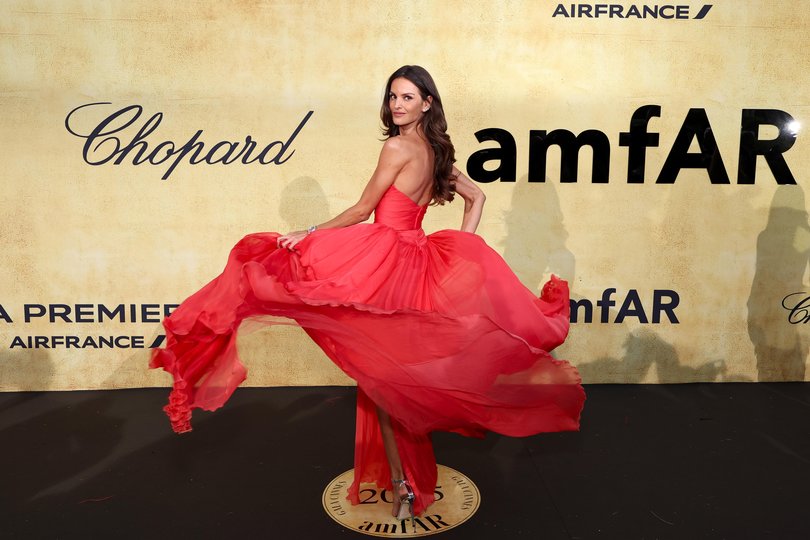
Finally, the parties
Walking around Cannes felt like an alternate universe where global leaders weren’t considering the possibility of economic calamity.
No event proved that excess is king more than Thursday’s 31st annual Amfar gala to benefit AIDS research, held on the grounds of the famed Hotel du Cap-Eden-Roc — where superyachts dotted the horizon at sunset and guests entered along a path lined with acacia trees and brightly lit cases of diamond-and-emerald Chopard jewelry.
“You always regret what you didn’t buy!” auctioneer Simon de Pury said, while cajoling someone in the crowd to pony up 400,000 euros for a pair of earrings.
“As you can see, there’s still a lot of people where the economy doesn’t really affect (them),” said Heidi Klum, an Amfar supporter for 25 years.
Klum also ably argued that the gala had already transitioned to a barter economy. The champagne from Telmont winery? Donated. Adrien Brody’s painting of Marilyn Monroe, which fetched 375,000 euros? A gift from the Oscar winner.
Everyone famous at the party, Klum pointed out, was there “for free” — minus whatever private jet or first class airfare, plus hotel, it had taken to get them there.
The too much-ness of spending at Amfar did have a sense of purpose.
Throughout the gala, speakers alluded to Trump’s rollbacks on health care spending, and in particular the dissolution of USAID, which directly affects the distribution of antiviral drugs around the globe — without getting too deep into politics.
Elsewhere, the premiere of Lee’s “Highest 2 Lowest” trafficked in brutal irony — a party for a movie about class consciousness that had an impenetrable VIP section.
Arriving at a beach club, guests were directed toward either a left or a right stairway.
Inside, the left side was packed with bodies, including those belonging to Lee, A$AP Rocky and Edward Norton. On the mostly empty right side were journalists, publicists and a lady screaming into her cellphone in French, who leaned on a table and knocked over several platters of hors d’oeuvres.
The same held true for the villa party held for Dickinson’s “Urchin” — a movie, ahem, about a man trying to crawl out from the bottom of society.
A VIP area was set up smack in the middle of the room, where plebes could only watch as the likes of Pedro Pascal, Paul Mescal, Jeremy O. Harris and Charli XCX partied until the wee hours.

Far more fun were the more inclusive parties for A24’s “Eddington” (where Austin Butler and Robert Pattinson chatted in a booth all night) and Neon’s “Splitsville” at the Lucia beach club, where Dakota Johnson held court as staff sprayed champagne and Alexander Skarsgard shimmied in shiny blue pants.
Guests swung napkins in the air as the DJ played banger after banger and even the bar staff got in on a dance party that raged for hours.
Then there was the party with the hardest-to-get ticket: Kering’s Women in Motion awards dinner, thrown by the festival at a castle high above Cannes.
The mood was best set by Salma Hayek, who could be found at all times smoking outside and chatting up anyone who approached.
The seating chart had been designed to seat the non-famous with the famous, so someone like this year’s emerging talent award winner, Brazilian director Marianna Brennand, could sit with the likes of Nicole Kidman, the night’s honoree.
In his speech, Cannes President Thierry Frémaux seemed determined to remind the room that Kidman was once a rising star, too.
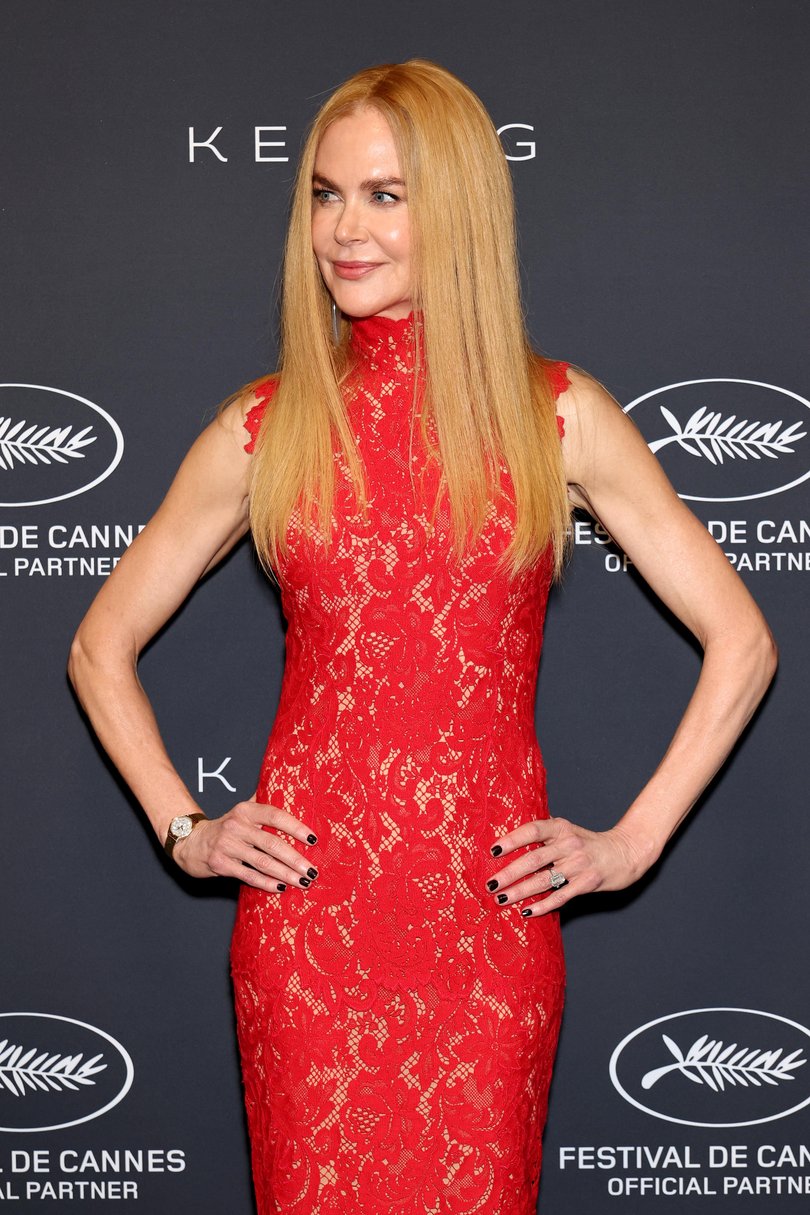
He called her “one of those barefoot queens of Cannes,” because in 2001, after the premiere of “Moulin Rouge,” she had taken off her shoes to descend the red-carpet steps.
He also told the room, “Australians know how to party!” To which a beet-red Kidman shouted out, “Enough!”
Enough, indeed. Till next year on the Croisette.
